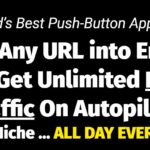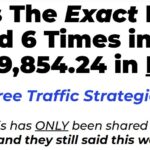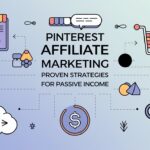What it Means to be Running a Professional and Profitable Blog
By running a professional blog, you’re not just doing it as a hobby but as a way to make a living or wield influence in your chosen field. As a professional blogger, you have several tasks to master, starting with creating content that is high-quality attracts, and engages your target audience. Your skillset should include talents such as effective writing, audience analysis, and a dedication to consistency.
Optimizing your successful blog for search engines and social media platforms is also crucial. Understanding basic SEO principles and implementing them helps generate more traffic and increase your blog’s visibility.
To keep your blog running, monetizing it is essential. This may involve strategies like advertising, affiliate marketing, or sponsored posts. Mastering these techniques will play a significant role in sustaining your income as a professional blogger.
Apart from the technical aspects, nurturing a loyal community of readers and followers is equally important. Your blog’s success depends on engaging with your audience and maintaining their interest in your content.
Additionally, professional bloggers must keep up with the latest trends and best practices in the blogging industry. This could involve setting aside time for research, attending seminars, or connecting with other successful bloggers. This continuous learning process helps to ensure that your blog remains an accurate and relevant resource in your niche.
One of the biggest perks of being a professional blogger is that it allows you to live a creative and flexible lifestyle. You have the chance to express your passion and expertise on the topics you love while impacting millions of people with your content. This can lead to building your personal brand and authority within your niche and eventually enjoying the fruits of your labor in the form of passive income and financial freedom. Embrace the challenge of running your blog with dedication and persistence, and you’ll be well on your way to becoming a successful blogger.
How to Make a Living as a Professional Blogger
Making a living as a professional blogger requires consistent effort, dedication, and strategy. You might be wondering how to make money from blogging. There are four main ways that can help you monetize your blog
- Advertising: Displaying ads on your blog using services such as Google Adsense or Mediavine.
- Affiliate marketing: Promoting products or services related to your niche using links or banners and earning commissions for each sale or action.
- Selling products or services: Creating and selling your own products or services such as ebooks, courses, coaching, etc.
- Sponsored posts or reviews: Accepting paid posts or reviews from brands or companies in your niche.
The amount of money you can make from blogging depends on several factors, including your niche, traffic, conversion rate, and expenses. Some niches are more profitable than others due to the level of demand, competition, and audience size. The more visitors you have on your blog, the more potential customers you can reach. Your conversion rate, or the percentage of visitors who take the desired action (clicking on an ad, buying a product, signing up for an email list), also plays a significant role. Additionally, you should keep your expenses in check, such as web hosting, domain name, theme, plugins, etc.
To give you an idea of what successful professional bloggers can make, here are some examples of what bloggers make:
- Neil Patel: A digital marketing expert who runs several blogs such as NeilPatel.com. He makes over $1 million per month from his blogs through advertising, affiliate marketing, and selling his own products and services.
- Michelle Schroeder-Gardner: A personal finance blogger who runs Making Sense of Cents. She makes over $100,000 per month from her blog through advertising, affiliate marketing, and selling her own course on how to start a blog.
- Pat Flynn: An online entrepreneur who runs Smart Passive Income. He makes over $200,000 per month from his blog through advertising, affiliate marketing, and selling his own products and services.
By following their footsteps and adapting their strategies to fit your unique blog and niche, you, too, can become a successful professional blogger. Remember to maintain a friendly and conversational tone, focus on delivering valuable information, and use engaging formatting and structure to create a visually appealing and easy-to-read article that will help your blog grow.
Reasons You Should Start a Blog
Starting a blog can be a fantastic way to share your knowledge and passion with others. Are you an expert in a particular field or simply passionate about a topic? A blog can serve as your platform to communicate that enthusiasm to the world, helping and inspiring others in the process.
Another compelling reason to start a blog is to learn new skills and improve your writing. The more you write, the better you’ll become at articulating your thoughts and ideas. Plus, navigating the blogging world will introduce you to various technical skills, such as search engine optimization, social media marketing, and website design.
Creating a personal blog can also be an excellent method for building your online presence and reputation. A well-written, informative blog can showcase your expertise and establish you as an authority in your niche. This, in turn, will open doors to networking opportunities with other bloggers and influencers, which can be invaluable for personal and professional growth.
Challenging yourself to run a blog can also lead to personal growth. The responsibility of producing regular blog posts, responding to comments, and promoting your content can encourage self-discipline, time management, and organization.
Let’s not forget the fun aspect of blogging: it’s a wonderful creative outlet! With a personal blog, you can experiment with different storytelling techniques, integrate visuals, and generally express yourself in a way traditional writing may not allow.
Lastly, starting a blog can lead to financial gains. Successful bloggers monetize their blogs through advertising, affiliate links, sponsored posts, or offering products and services. Although it may take some time to build an income-generating blog, the potential rewards make it an endeavor worth considering.
So, are you ready to start your blogging journey? Remember, by creating a blog, you’ll be sharing your knowledge and experiences and cultivating a space for personal growth, networking, and maybe even financial freedom!
Become a Blogger – New Blog Misconceptions
You might have come across some common misconceptions about blogs that might be holding you back from starting your own. Let’s debunk these myths so you can confidently begin your blogging journey.
Firstly, some believe that blogging is easy. In reality, blogging requires hard work, patience, and persistence. It takes time to create quality content, drive traffic, build an audience, and monetize your blog. So, don’t be discouraged if you don’t see immediate results, as it’s all part of the process.
Another misconception is that blogging is dead. Fortunately, this is far from the truth. With over 600 million blogs on the web and over 70 million new posts published every month on WordPress alone, blogging is still alive and thriving. Plus, the blogging landscape is evolving with new trends such as video blogging (vlogging), podcasting, and live streaming.
Some people might also tell you that blogging is saturated and there’s no room for new blogs. Contrary to this belief, there are still plenty of opportunities to start a successful blog in any niche, as long as you can offer unique value, solve problems, and entertain your audience. While it’s true that blogging is competitive, it’s not oversaturated.
Lastly, you might have heard that blogging is expensive, but this is another myth. Starting a blog in 2023 can be quite affordable, with blog hosting plans available for as low as $2.75 per month. The most crucial aspect is to choose a reliable hosting provider, a catchy domain name, and a blog theme that is both visually appealing and functional.
In conclusion, don’t let these misconceptions deter you from starting your blog online. With the right mindset, proper planning, and diligence, you too can create a successful, professional blog that stands out from the crowd.
Want to Start a Blog – Choose the Best Blogging Platform?
When you want to start blogging, finding the right platform to meet your needs is essential. With so many options available, it might feel overwhelming, but fear not! The most popular and recommended platform is WordPress blog, which powers over 40% of all websites on the internet.
WordPress is a free, open-source, and powerful platform with numerous benefits, including easy installation and customization, thousands of themes and plugins to enhance your blog design and functionality, high security and performance, and full control and ownership of your blog’s content and data.
Remember, when you start a blog, it’s crucial to deliver your information quickly without fluff, make it visually appealing, and maintain a friendly and conversational tone. This will ensure your blog posts are engaging and interesting to your readers. Use clear and concise language without jargon and complex words to keep your writing search engine friendly.
By following these guidelines and choosing the right platform, you’ll be well on your way to running a successful professional blog. Happy blogging!
What are the Key Steps to Get Your Blog Online? (Choose Your Blog Name and More)
Starting a professional blog can be an exciting journey, and following these five key steps will help you set up your blog for success.
Step 1: Choose your blog topic and name Pick a topic that you’re passionate about, interested in, or knowledgeable about. Narrow down your topic to a specific niche that has enough demand and low competition. Use keyword research tools to find relevant and profitable keywords for your niche. Choose a catchy and memorable name for your blog that reflects your topic and brand.
Step 2: Find the right blogging platform As a professional blogger, using WordPress.org as your blogging platform is recommended. It’s free to download from the official website and offers a wealth of customization options.
Step 3: Set up web hosting Web hosting is essential for making your blog visible on the internet. Choose a web hosting provider that offers reliable uptime and speed, affordable pricing and plans, easy WordPress installation and support, and free domain name registration and SSL certificate.
Step 4: Configure your blog After installing WordPress, configure some basic settings for your blog such as site title and tagline, permalink structure, user profile, and password. Access these settings from your WordPress dashboard by clicking on Settings > General.
Step 5: Design and customize your blog The design and appearance of your blog can make a significant impact on your audience’s first impression, engagement, and trust. Choose a theme and install plugins from your WordPress dashboard that are responsive, fast, compatible, secure, and updated. This will ensure a visually appealing and functional blog for your readers.
By following these steps, you’ll be well on your way to running a successful professional blog. Good luck, and happy blogging!
Write Your First Blog Post – Create Successful Blog Content
Creating engaging content for your blog involves researching your audience’s needs, problems, and interests and planning your content strategy and editorial calendar. You’ll want to write engaging and informative blog posts that provide solutions, insights, or tips and enhance your content with appealing media. Also, don’t forget to optimize your content for SEO and proofread before hitting the publish button.
To create engaging content for your blog, follow these tips:
Know your audience: Understand who they are, what they want, and how you can help them. Write for your audience using a conversational tone and address their pain points, providing actionable advice.
Write catchy headlines: Use power words, numbers, questions, or curiosity to grab attention and entice clicks. Your headlines should give your readers a reason to click through and read the full content.
Write clear introductions: Hook the reader with a compelling opening sentence, state the main idea and benefit of the post, and provide an overview of what to expect throughout the article.
Write scannable body paragraphs: Make your content easy to read and follow with short sentences, paragraphs, bullet points, subheadings, and transitional phrases. This helps your readers quickly digest the content and find the information they need.
Write strong conclusions: Summarize the main points of the post, restate the benefit or value proposition, and include a call to action or a question to encourage comments and deeper engagement with the content.
Add visuals: Break up text and illustrate your points with relevant, high-quality images, videos, infographics, or other media. This adds interest to your blog post and can help keep readers engaged for longer periods.
Optimize for SEO: Use keywords naturally throughout your content, especially in the title, headings, URL, and meta description. Add internal and external links to relevant sources, use alt text for images, and utilize tools like Yoast SEO or Rank Math to check your SEO score.
What are the Most Effective Ways to Make Money From Your Blog?
There are four main ways to monetize your blog, and selecting the best method depends on your niche and audience. Here are the top strategies:
- Advertising: Display ads on your blog using services like Google Adsense or Mediavine. These platforms help you earn revenue by showing relevant ads to your visitors.
- Affiliate marketing: Promote products or services related to your niche through special links or banners. You’ll earn commissions for each sale or action that results from your referral. Join popular affiliate networks like Amazon Associates to get started.
- Selling products or services: Create and sell your own products or services, such as ebooks, courses, or coaching sessions. This strategy requires more effort but can bring in higher profits.
- Sponsored posts or reviews: Accept paid posts or reviews from brands or companies in your niche. Make sure to disclose these collaborations to maintain transparency and trust with your audience.
To monetize your blog effectively, follow these tips:
- Choose the right monetization method for your niche and audience. Research in-demand, relevant products or services that resonate with your readers.
- Provide value and trust by promoting or selling products that you have personally used or tested. Be honest and transparent about your experiences and disclose any affiliate links or sponsored posts.
- Optimize your blog for conversions with clear calls to action and landing pages. Add testimonials or social proof to build trust. Use tools like OptinMonster or Thrive Leads to create pop-ups, banners, and forms for capturing leads or sales.
Remember to use a friendly, conversational tone in your content and focus on delivering valuable information quickly. Make your articles visually appealing with various formatting options such as paragraphs, bullet points, numbered lists, bolding, and italic text. Keep sentences and paragraphs short, and use clear language and transitions to guide your readers through your content.
How to Promote Your Blog – Get Traffic and Attract an Audience and Make Money Blogging
Running a professional blog can be highly rewarding. Still, attracting an audience and increasing your blog traffic is essential. Traffic contributes to growing your audience, raising brand awareness, improving your SEO ranking, and generating revenue. Here are some strategies you can implement to achieve this goal:
One of the most effective ways to increase your blog traffic is by sharing your content on social media platforms such as Facebook, Twitter, and Instagram. Create engaging posts that showcase your content’s value, use hashtags and keywords to increase reach, and join groups or communities related to your niche.
Building an email list is another excellent strategy. Offer incentives like ebooks or courses to entice people to sign up for your email list. Use tools like Mailchimp or ConvertKit to manage your campaigns. Send regular newsletters with valuable tips and updates, and don’t forget to include links to your latest blog posts.
Guest posting on relevant and authoritative blogs in your niche can also be beneficial. Research blogs that accept guest posts and pitch them with unique and valuable topics. Write a high-quality post showcasing your expertise and include a link to your blog in the author bio or within the post. Moreover, promote the guest post on your social media platforms to attract more readers.
Collaborating with other bloggers can help expand your audience, too. Establish connections with fellow bloggers in your niche to share ideas and promote each other’s content.
Remember to use various formatting options, such as bullet points, tables, and bold text, to make your article visually appealing and easy to read. Keep a friendly and conversational tone, and use clear, concise language.
By incorporating these strategies, you can effectively increase your blog traffic and attract a loyal audience, helping your professional blog thrive.
Start a Blog FAQ
So, you’ve decided you want to create a professional blog? Great choice! Let’s dive into some frequently asked questions to help you along your journey.
Is blogging still effective? Absolutely! 90% of businesses still use content marketing, and 92% of content marketers rely on blogging as their primary form of content. Blogging helps you keep your audience updated, drive more traffic to your site, and gain valuable feedback from your customers.
How do I choose a topic for my blog? The key is to pick a topic you’re passionate about or interested in. Think about what you want to learn more about and what topics could help others, too. This will make it easier to stay motivated and write engaging content for your readers.
What about hosting? It’s essential to select the right hosting provider for your blog. Avoid blog for free and hosting platforms and opt for a well-managed hosting provider like SiteGround. They offer solid performance and support at a reasonable price.
Now, let’s touch upon a few other common questions:
How often should I put a new blog post on my blog? It’s important to post consistently. Setting a posting schedule, whether it be daily, weekly, or bi-weekly, is crucial for keeping your readers engaged and showing search engines that your blog is active.
How can I promote my blog? Social media platforms, email marketing, and guest posting are excellent ways to promote your blog. Don’t be shy; share your content with the world and engage with others in your niche to build a following and gain traction.
What if I’m not a great writer? Don’t worry! Practice makes perfect. Stay dedicated to honing your skills, and don’t hesitate to ask for help or feedback from others. Many resources are available online to improve your writing and storytelling abilities.
Your next step is simple – put what you’ve learned into practice in your business.
Whether you’re looking to earn extra cash with a blog or a full-time income, this strategy is the perfect way to earn more profits.
So take action now!










